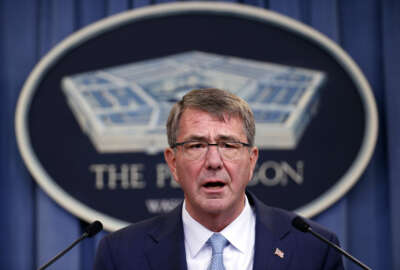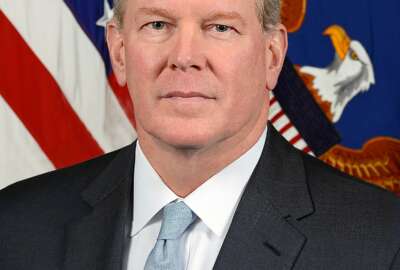
DoD’s chief management officer resigning after only nine months on the job
DoD's third-highest ranking official, John Gibson, is leaving his post effective at the end of the month.
The Pentagon’s third-highest ranking official announced his resignation on Friday, only nine months after taking on the gargantuan assignment of reforming the business operations of the government’s largest department.
John “Jay” Gibson, the Defense Department’s chief management officer, will leave the position on Nov. 30, the Pentagon said in a brief statement. He’ll be replaced on an acting basis by Lisa Hershman, the deputy CMO.
“[Gibson’s] efforts to streamline processes, establish the department’s Reform Management Group, and identify significant savings across the department will pay dividends in fiscal year 2019,” said a spokesman, Lt. Col. Joe Buccino. “Our commitment to bringing business reform to the department remains unwavering and will result in the increased lethality of our force. We appreciate his service to the department and wish him continued success.”
The department did not cite a reason for Gibson’s departure. However, the Wall Street Journal first reported in September that Defense Secretary James Mattis was dissatisfied with the pace of the institutional reforms he was tasked with implementing, and that his role was being cut back while the Trump administration searched for a replacement.
Gibson was confirmed only in February, when he became the department’s first-ever chief management officer. Congress created the powerful new position in the 2017 defense authorization bill and made it the third most senior position in the department, behind the secretary and deputy secretary. Perhaps most significantly, the new law gave the CMO the authority to order business reforms within the Army, Navy and Air Force.
It also required that the CMO be someone with at least seven years of experience running large, complex, private-sector organizations. Gibson, a former CEO of XCOR aerospace who also once served as an assistant secretary of the Air Force, appeared to fit the bill.
The Pentagon said Friday that Gibson had “set conditions for the department’s reform initiatives,” which have been among Mattis’ top three priorities (alongside restoring readiness and strengthening alliances).
One of Gibson’s first acts, under the auspices of the Reform Management Group, was to establish nine separate teams to look for ways to incorporate more use of shared services into the operations of the Defense agencies and military services.
In Congressional testimony earlier this year, he had also endorsed a controversial Defense Business Board study which postulated that DoD could save $125 billion over five years by using the same techniques large companies have employed to cut their overhead costs, including more shared services, less reliance on service contractors and incentivizing some civilian employees to retire early.
Copyright © 2025 Federal News Network. All rights reserved. This website is not intended for users located within the European Economic Area.
Jared Serbu is deputy editor of Federal News Network and reports on the Defense Department’s contracting, legislative, workforce and IT issues.
Follow @jserbuWFED






